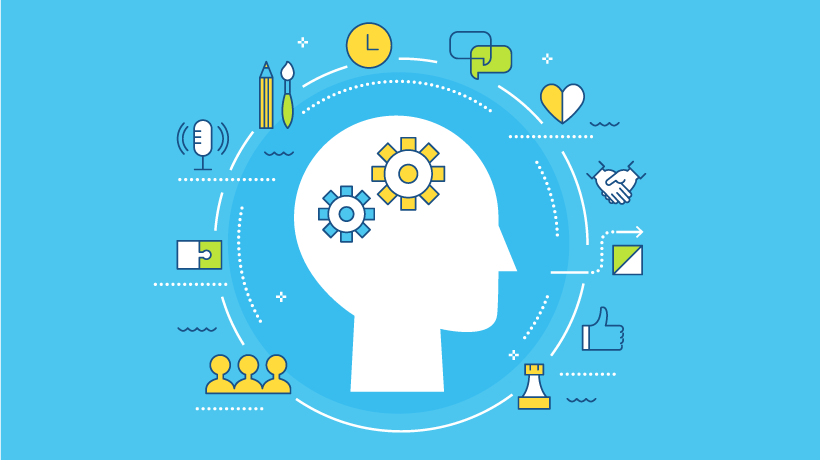A friend, a helping hand, a communicator, a person to trust and rely on – that’s a short list of personifications perfectly united in one single person – the caregiver. Being a caregiver is not something you can just learn from the book, it is an inner desire to be a helping companion for those who need it.
Understanding the Role of a Caregiver

Caregivers fill a vital role in the lives of individuals who are unable to care for themselves on their own. Caregivers provide a wide range of services, including physical and emotional support, home-health activities and daily living assistance. According to myallamericancare.com, a successful caregiver should have certain qualities, such as compassion and empathy, attentiveness to detail, positive outlook and commitment to providing quality care.
It takes patience and understanding to be a successful caregiver and recognize the personal needs of those under your care. As the caregiver’s role can go beyond simply providing medical attention or specific healthcare tasks it is important for them to look at the bigger picture and assess how best to take action in order for the individual under their care to live an active lifestyle and manage long term conditions with as much independence as possible.
Caregiving is a stressful yet rewarding job. Obviously, when people ask for your service, the only reason is their incapability due to health issues, age matters, or both – that’s a saddening fact. However, the pleasure of being a caregiver is immense. Typically, your clients are people who saw life in all its aspects and are willing to share their biggest treasure – the memories. Every visit may be both a struggle and an imaginary trip back into history full of adventures and unforgettable moments.
Caregiving encompasses various forms – shopping, housekeeping, providing transportation, feeding, bathing, toilet assistance, dressing, walking, talking, cooking, etc. The list of duties is typically discussed and approved in advance.
As with all types of professions, caregiving is about constant development, as there’s always room for improvement.
How to master the skills of caregiving?
1. Learn psychology

Your desire to help will make the beginning of your pace, yet it’s the psychology that will make your way further. You need to understand the motives of the person’s behavior, the reasons for the whims or tantrums, and the ground for moodiness or excessive anxiety. The knowledge of temperaments and types of personalities will help you communicate with the client better, as it will be possible to anticipate their actions and behavior, and thus, avoid conflict or misunderstandings.
Besides, knowledge of psychology works for both sides, as you need to be aware of burnout. Human-human work is stressful, especially when it’s connected with a disability or some type of illness. Therefore, learning the techniques and methods to prevent the deterioration of your mental state is important as well.
2. Sign up for a basic medical course
“Praemonitus, praemunitus” – forewarned-forearmed. Caregiving is not about medical help, it’s a well-known fact. Moreover, the caregiving jobs hiring agencies always emphasize that medical help isn’t provided. However, it never hurts to know more, especially first-aid essentials. Besides, this knowledge will definitely be helpful outside the job, as our life is full of surprises, and not only pleasant ones.
Furthermore, knowledge of the basics about the client’s illnesses will be of considerable help as well. It will provide your awareness of the health conditions, all the dos and don’ts, and instill your confidence.
3. Get to know your client

Before embarking on the cooperation, you need to learn everything about your client from all the possible sources – physicians, nurses, previous caregivers, and family members. This knowledge will make you more competent and help to create an atmosphere of trust, reliability, and understanding.
Instead of just chaotically asking about the client, be more proactive – create the questionnaire, with the categories of questions, and fill them up with the answers whenever feasible. By collecting all the bits and pieces of the information, you will see the big picture, understand the strengths and weaknesses and be able to work out the behavior algorithm.
4. Physical readiness
Work and help can’t be performed at the expense of your health. The care receivers often need physical help, with bathing, washing, toilet activities, etc., their immobility and weight just multiply the load. Such activities require a great deal of muscle strength from you. It’s highly recommended to train your body, go to the gym regularly, follow a sleep regimen, and have good nutrition as well. The efficiency of your work is directly influenced by your own physical state, never give up on your needs.
5. Soft Skills development

Well-developed soft skills will create an amicable basis for your work and help to provide the finest care possible. Clients may often have a feeling of despair and frustration, as it’s difficult to accept their incapability, even if it’s a temporary one.
Empathy and compassion are critical in terms of caregiving. Listening skill is vital, as your patient wants to talk, and having an attentive and proactive listener is priceless. It’s important to learn communication techniques to avoid burning questions and critical moments. Remember about the balance and don’t get argumentative, the point is in conversation itself and listening. The only thing that matters is the well-being of your client.
6. Informational readiness
When you get to know your client better, dedicate some time to learning the basics of their profession, at least how everything works, and factual information. It may be quite shallow knowledge, however, it will give you a chance to maintain the conversation at any time needed.
This may seem like a time waste for those who just spend a few hours per week with the person, however, when having daily visits, it may build up a good basis for communication, and thus, a trust level.
Being a caregiver is a challenging vocation, as there are numerous functions to perform. Taking up any supplemental training will make a part of your growth and help to build up your profile. Such development benefits you professionally and personally as well, as you become more knowledgeable and well-educated.
Related Posts:
- 8 Ways AP Automation Can Disrupt Businesses for the Better
- For the Better: 6 Ways on How to Fix Your Credit…
- 5 Ways Integrative Psychiatry Can Help You With Your…
- 6 Creative Ways You Can Reuse Your Glow Sticks - 2024 Guide
- Ways Apps Can Help In Keeping You Motivated
- Ways you can Enjoy Classic Games with a Modern Twist








